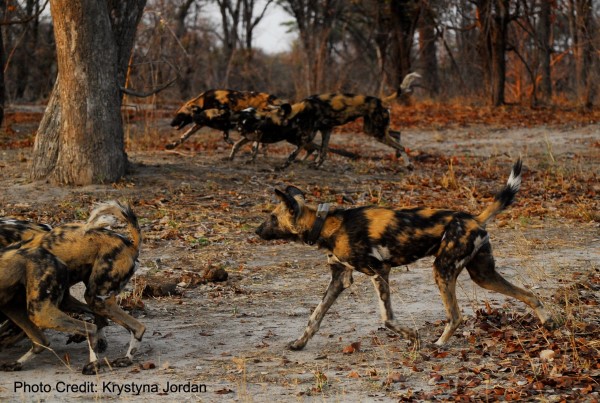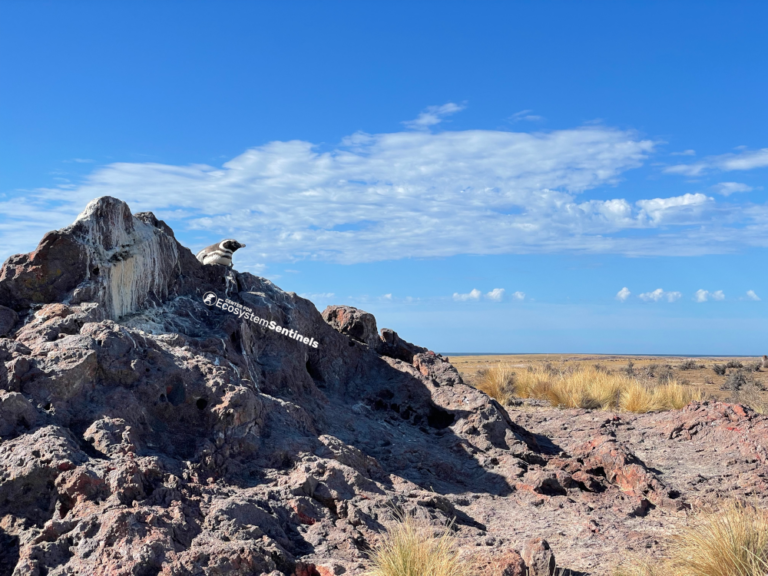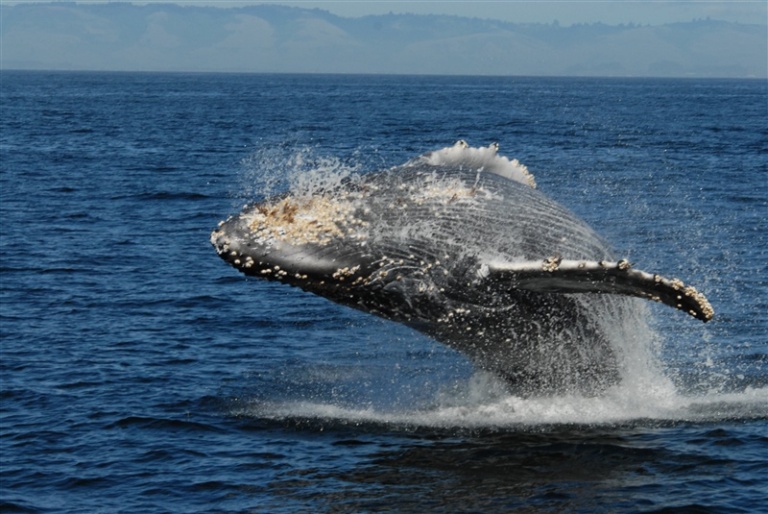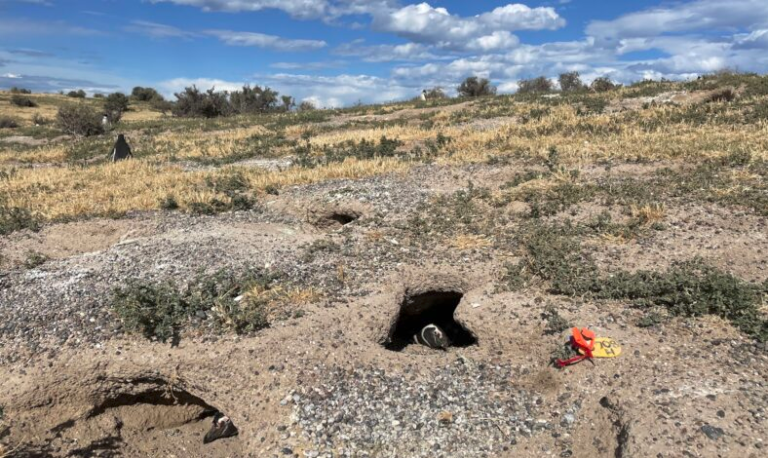
After Assistant Professor of Biology and Boersma Endowed Chair Dr. Briana Abrahms and her team deployed GPS-audio wildlife tracking collars on African wild dogs and lions during the summer of 2022, Dr. Abrahms and Dr. Kasim Rafiq, a postdoc in the Abrahms Lab, have been working with industry collaborators to build AI models that detect behaviors (such as hunting) and hunger levels from the collar data.
In the coming months, Kasim will travel to the Okavango Delta to work with our collaborators at Botswana Predator Conservation to deploy additional African wild dog and lion collars and collect the behavioral data – by following and observing the collared animals – needed to finish these AI models. Once built, Dr. Rafiq will use these crucial data to understand how predator movements and behaviors – such as hunting – are affected by climate change – such as rising temperatures and drought – and will allow us to explore whether hungrier animals make more risky decisions.
Leigh West, a second year PhD student in the Abrahms Lab, will also be returning to the Okavango Delta this summer. She will be spending two months at our field site to collect carnivore behavioral data and conduct preliminary interviews with people in the local communities surrounding our study area to understand their perspectives as part of her broader dissertation on how climate change is impacting human-carnivore conflict.


